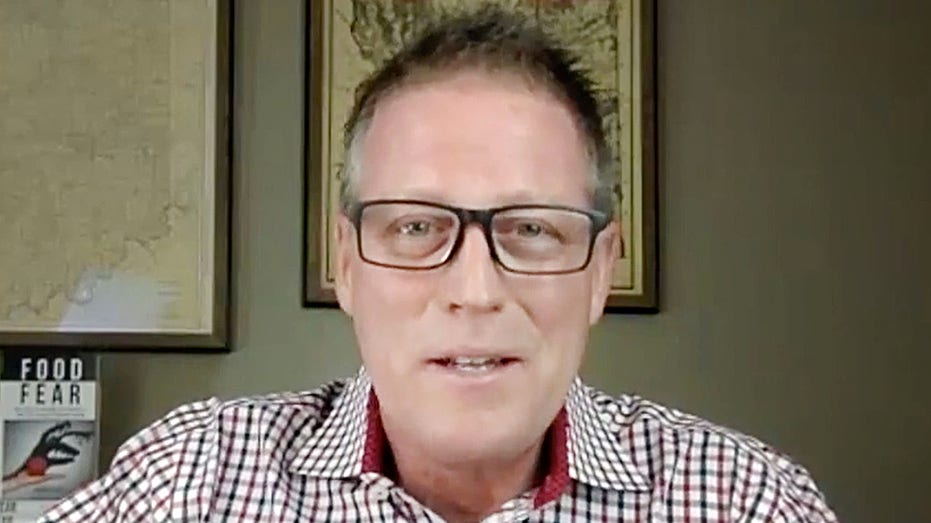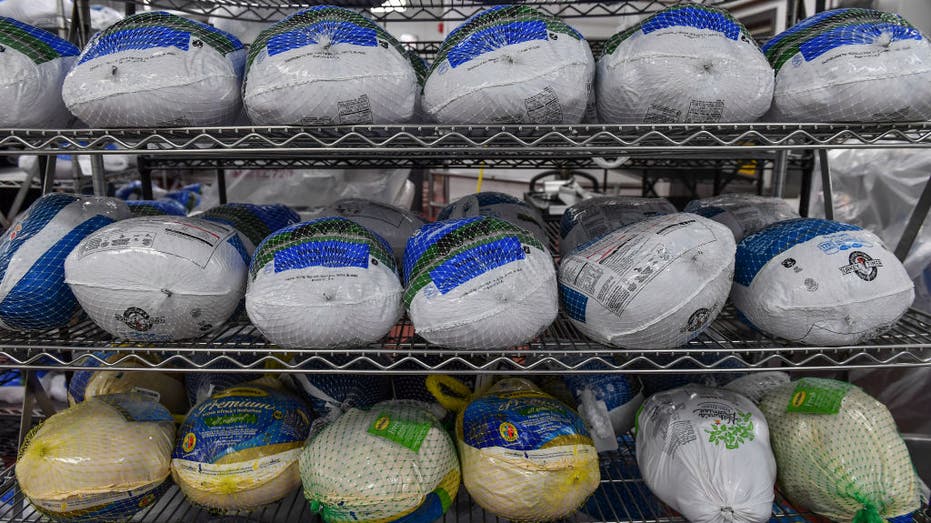Farm owner, economist warns COVID shutdowns would increase prices and cause shortages
Damian Mason's comments come amid high levels of inflation and concerns that federal spending could make a bad situation worse
Fox Business Flash top headlines for December 22
Check out what's clicking on FoxBusiness.com.
Damian Mason, a farm owner and agricultural economist, is warning that additional coronavirus shutdowns and regulation would hurt the industry.
"The food processing facilities will really be pushing it because they are already under capacity because they can’t get workers," Mason said in a statement provided to FOX Business Tuesday.
"Omicron implications will limit capacity that is already limited and will increase prices due to curtailing supply and may even put a fear jolt into grocery availability (again). The worst thing would be government imposed shutdowns of the facilities because it would spike shortages."

He also warned about "Regu-flation" which he described as "when increased operational and production costs, imposed by expanded government regulation, combine with already rampant inflation in the marketplace."
HOUSE DEMOCRATS CAUTIOUSLY OPTIMISTIC ON INFLATION AS THEY PURSUE GREATER SPENDING BEFORE MIDTERMS
Mason's comments come amid high levels of inflation and concerns that federal spending could make a bad situation worse. Personal Consumption Expenditures price index data showed that prices rose 5% in the year through October. That was the quickest rate seen in more than three decades.
The current U.S. national debt is $29 trillion, and the budget deficit for fiscal year 2021 is $3 trillion according to the Congressional Budget Office (CBO).

A rack of turkeys waiting to be deboned at the Meat Plant within the Maryland Correctional Institution on Nov. 18, 2019 in Hagerstown, Maryland. (Ricky Carioti/The Washington Post via Getty Images) (Getty Images)
"The same government that told you food inflation was a mere 5.4% despite evidence to the contrary also told you the pain you’re feeling at the grocery checkout is ‘transitory,’ or temporary," Mason said.

Traffic passes a downtown Los Angeles gas station where a gallon of gas costs over $6 on Dec. 10, 2021. (Photo by FREDERIC J. BROWN/AFP via Getty Images) (Getty Images)
"It’s not. Food prices will continue to accelerate and are likely to outpace the rate of overall inflation due to the reasons I’ve outlined above, none of which are going away. Welcome to the era of "Regu-flation," where rules and policy make it more expensive to eat."
House Democrats have generally offered cautious optimism about rising inflation, arguing that it would eventually be tempered.
DAIRY FARMER: WHY EXCESS MILK CANNOT SIMPLY BE SENT TO FOOD BANKS, HOMELESS SHELTERS
"Inflation right now is problematic, but not out of control as far as the economists across our entire nation have indicated," Rep. Tom O'Halleran, D-Ariz., said during a telephone town hall in October. "Hopefully we’ll get out of that within the next half year or so."
Rep. Sean Casten, D-Ill., similarly said in August that "every economist we've talked to, including Chairman Powell … has basically said very consistently [t]he inflation we are seeing in the economy right now is passing, transitory, and manageable." He cited Federal Reserve Chairman Jerome Powell, who said in June that price increases were temporary.
While the future for inflation remains unclear, it will likely play a prominent role in Republican attacks in the coming months.
Democrats' Build Back Better package, which Sen. Joe Manchin, D-W.Va., virtually killed in the Senate, was expected to prevent short-term inflation, according to Moody's Analytics.
GET FOX BUSINESS ON THE GO BY CLICKING HERE
William Foster, vice president and senior credit officer at Moody's, reportedly said: "The timing is really important — that money will only start flowing into the economy maybe in the end of next year and in 2023 and on."
He added: "We think inflation will moderate by the middle of next year. By then, the supply-chain issues will work themselves out."




















